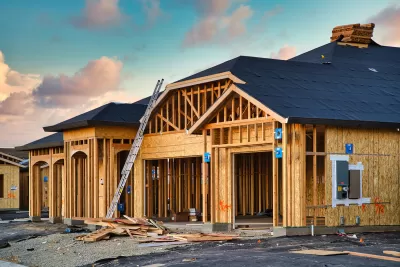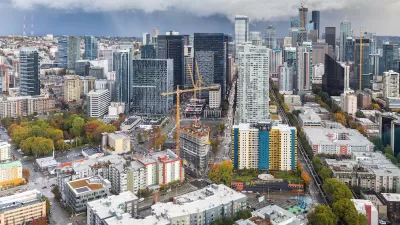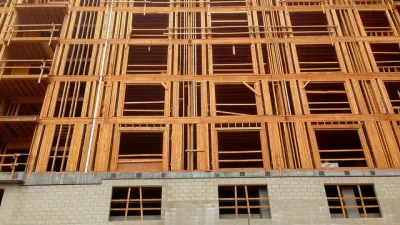An upcoming ruling could have a major impact on building and development in California and around the country.

The U.S. Supreme Court will weigh in on a California law that charges developers an impact fee for new construction. As Bob Egelko explains in the San Francisco Chronicle, the case, brought by property owner George Sheetz, “will determine how far a local government must go to show that fees charged for construction projects are needed to cover the costs that the construction is likely to cause. It could also affect the types of housing that cities and counties allow to be built.”
Sheetz is being charged $23,420 by El Dorado County to mitigate the impact of new traffic on roads leading to the home he plans to build on his property. “Sheetz paid the fee, was granted the permit and then sued for a refund, claiming a violation of his property rights,” but his lawsuit was denied by state courts.
Now, his appeal to the nation’s highest court is being supported by the California Building Industry Association and the National Association of Home Builders.
The ruling could have a ripple effect on all development in the state, such as ‘inclusionary zoning’ regulations that require affordable units in new multifamily developments. According to law professor Chris Elmendorf, a ruling in favor of Sheetz could, in the long run, make local governments more resistant to approving new housing.
FULL STORY: Supreme Court to weigh fees charged to California homebuilders

Trump Administration Could Effectively End Housing Voucher Program
Federal officials are eyeing major cuts to the Section 8 program that helps millions of low-income households pay rent.

Planetizen Federal Action Tracker
A weekly monitor of how Trump’s orders and actions are impacting planners and planning in America.

Ken Jennings Launches Transit Web Series
The Jeopardy champ wants you to ride public transit.

California Invests Additional $5M in Electric School Buses
The state wants to electrify all of its school bus fleets by 2035.

Austin Launches $2M Homelessness Prevention Fund
A new grant program from the city’s Homeless Strategy Office will fund rental assistance and supportive services.

Alabama School Forestry Initiative Brings Trees to Schoolyards
Trees can improve physical and mental health for students and commnity members.
Urban Design for Planners 1: Software Tools
This six-course series explores essential urban design concepts using open source software and equips planners with the tools they need to participate fully in the urban design process.
Planning for Universal Design
Learn the tools for implementing Universal Design in planning regulations.
Ada County Highway District
Clanton & Associates, Inc.
Jessamine County Fiscal Court
Institute for Housing and Urban Development Studies (IHS)
City of Grandview
Harvard GSD Executive Education
Toledo-Lucas County Plan Commissions
Salt Lake City
NYU Wagner Graduate School of Public Service





























